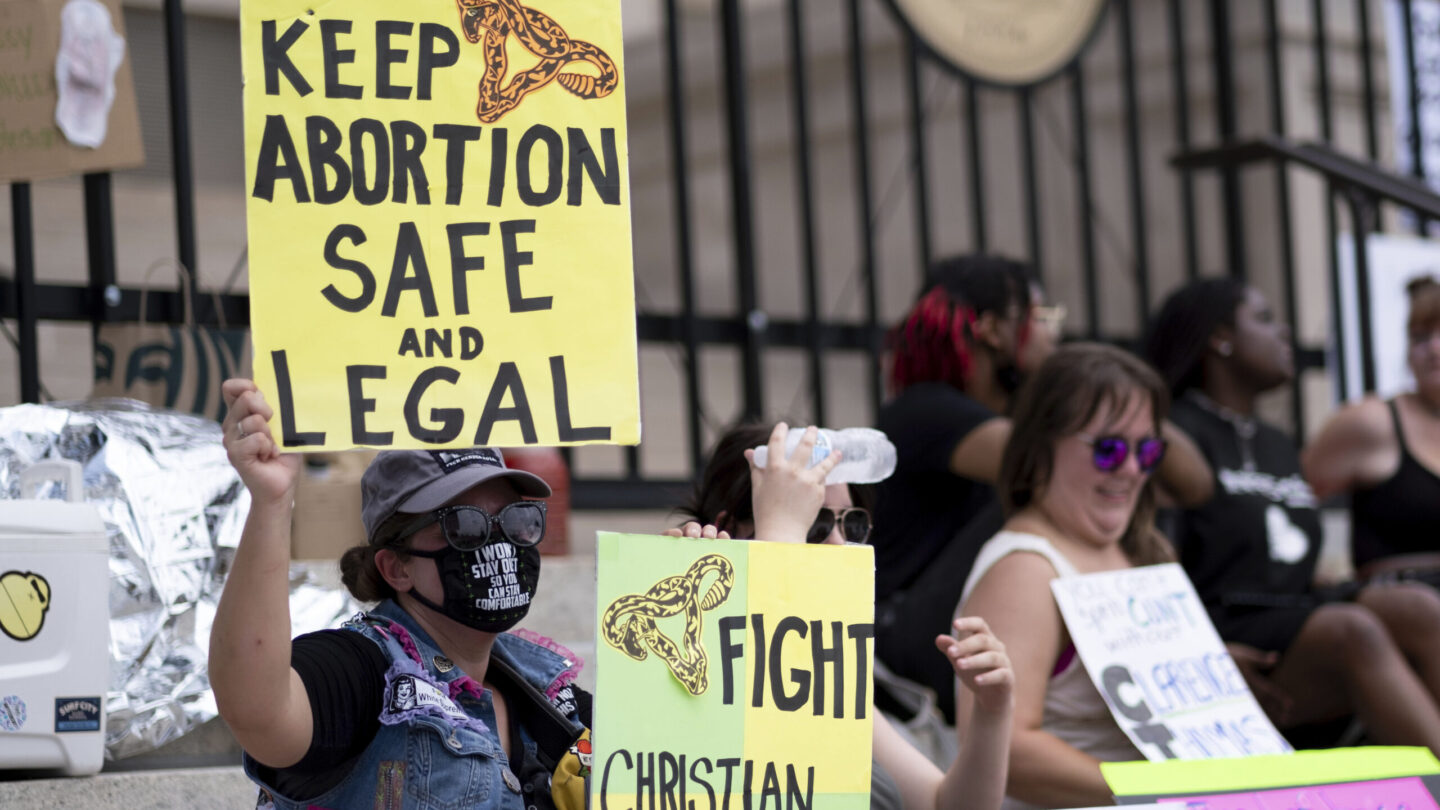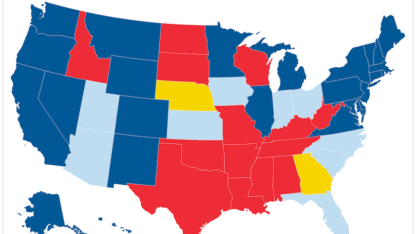Saturday marks one year since the U.S. Supreme Court overturned Roe v. Wade– the 1973 decision that legalized abortion in the U.S.
Since the Supreme Court’s divided decision in the case Dobbs v. Jackson Women’s Health Organization, the nation has seen major changes to abortion access.
The ruling gave individual states the power to set their own individual abortion policy.
Georgia’s current law bans terminating a pregnancy once a doctor can detect cardiac activity at around six weeks. The Georgia Supreme Court will decide whether the state’s restrictive abortion law violates the constitution.
On Friday’s edition of “Closer Look,” Georgia State University law professor Anthony Michael Kreis discusses life after the high court’s ruling and what challengers of the law will have to prove in lower courts.







